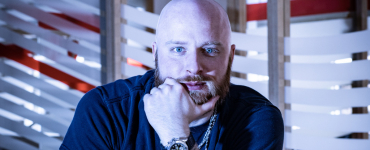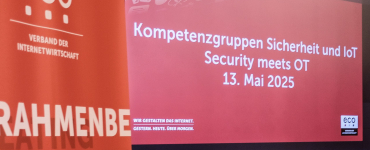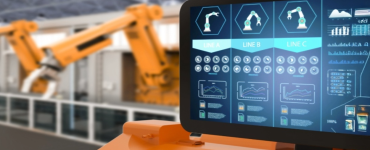Interview with Michael Sahnau, Microsoft Germany, on IoT and AI.
Michael is responsible for the area Digital Business Transformation (IoT) at Microsoft Germany. He can look back on more than 20 years of experience in the introduction of new innovative incubation approaches for information technology for companies like Siemens, Philips, and Microsoft.
On 23 November 2017, Mr. Sahnau will be presenting at the IoT Future Trends.
Mr. Sahnau, can you still remember the first time in your life that you came in contact with the Internet?
No, unfortunately, I can‘t. I think there was a seamless transition – but also, at times I made use of bridging technologies. What I can remember are the phases when “proper” email addresses could be transferred into the client from an X400 Message System. I also remember how my analog modem at home initially rang mailboxes, and at some point a browser replaced many of these mailboxes. So I would say that it was a seamless transition, and over time functionalities like communication and finding information were migrated into the Internet.
Earlier, the keyboard, mouse, and monitor were the only interfaces to the Internet. Turning that around, what will not be connected in the future?
I am convinced that people will opt for offline scenarios in certain areas. With increasing information and greater understanding, people will make conscious decisions about what they want to share, and what not. There will be no technical limitations. From the intelligent sock, which provides an array of data about the body, to drones that perform intelligent services, and right on through to complete digital cities, everything is technically possible. Things will not be connected in situations where people decide against it. Where some people say, for instance, that their mattress should not measure how they sleep, because they’d prefer to keep this to themselves.
Satya Nadella said at the DLD Conference a few months ago that Artificial Intelligence should be to help people, not to replace them. Why should we not be worried about AI?
AI is an enormous opportunity – it raises a lot of ethical questions, but it has enormous potential to help us. Currently, probably the most important activity is to make sure that the public is clear that some robots somewhere will not set about starting up wars, but that machines will do what people tell them to. For example, AI is without doubt a very good tool to offer better services in the health sector. I’m not only thinking about better cancer treatments, but also tools for patients, like Project Emma, which allows patients with Parkinson’s to take a pen in their hand again, or like the “Seeing AI,” which enables people with visual impairments to participate fully in life through the intelligent interpretation of their environment through a camera system. Any efficiencies that result in the health sector could then be used to ensure that care personnel have more time with the people they care for.
How do you interact with Artificial Intelligence and the Internet of Things in your private life? Does Cortana control your smart home?
When I look at the log of my router, I see that at peak times there are 52 devices connected to the Wi-Fi. Whether that’s the digital scales, the camera outside the front door, or my sports watch, which automatically transmits information on how I sleep and what activity I get. None of that is intelligent. The first intelligence comes as feedback, when I get advice on how I could train better. In my daily life, Cortana tends rather to play the role of regularly telling me that I really should get going now, given that my GPS position and my Outlook calendar entry with the address will result in a travel time that’s going to be hard to achieve. Given that I live in north Germany, she also often tells me that I should take an umbrella with me.
Are there times, for example, times of the day or holidays, when you consciously go without using any digital technology?
No, unfortunately not. The devices are different when I’m on holiday, but it’s a long time since I was offline. Technology simply offers too many comforts.




